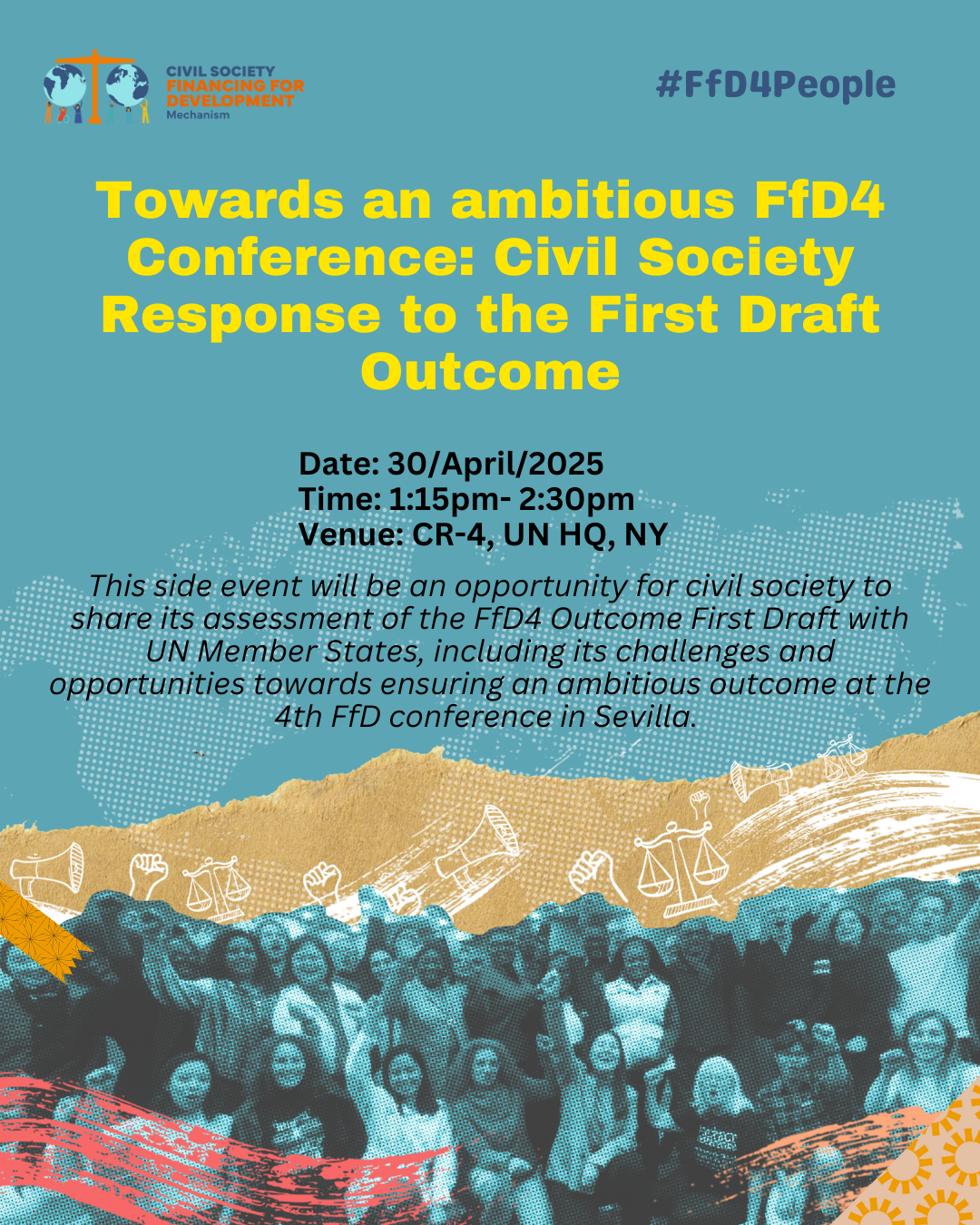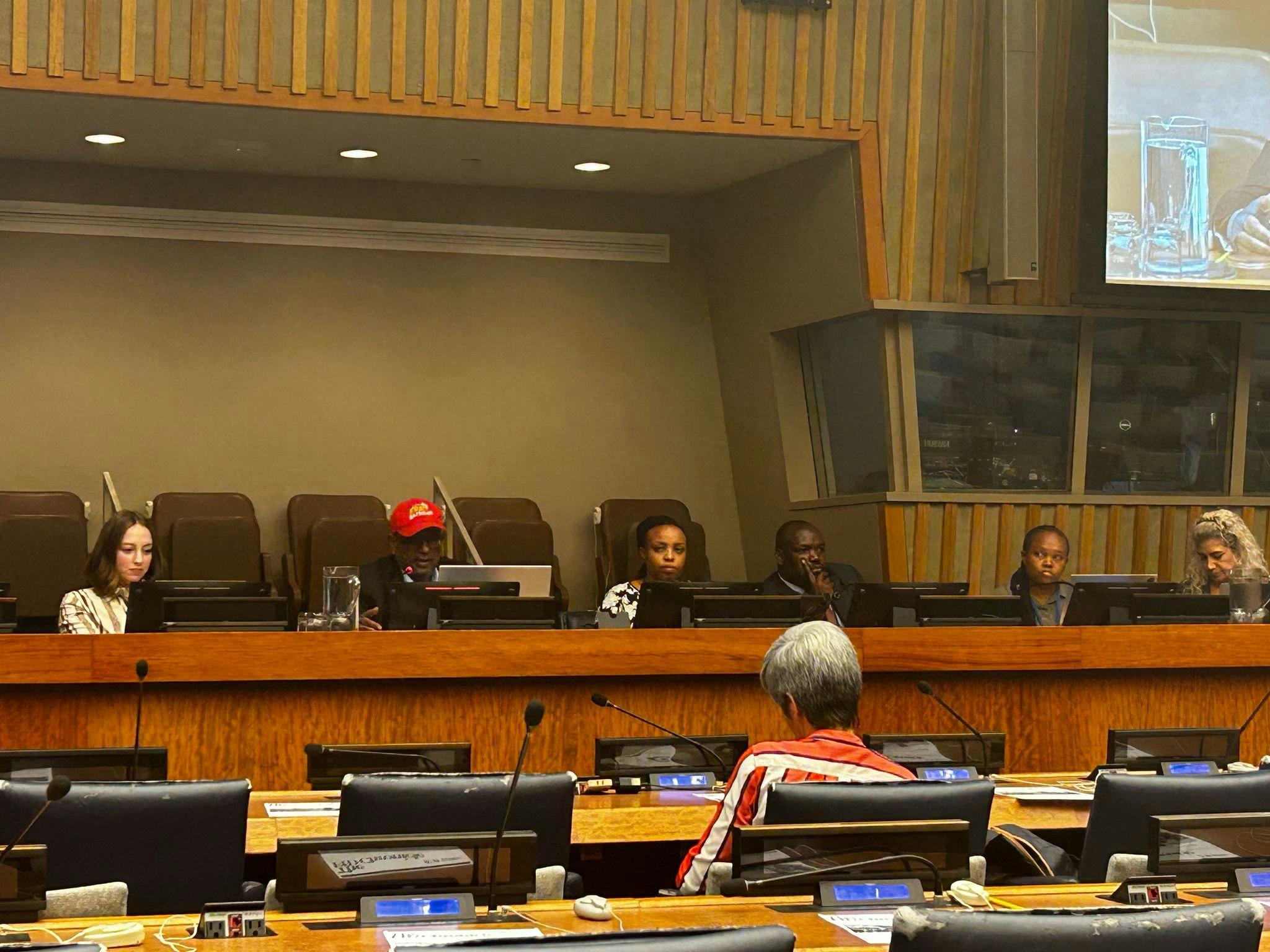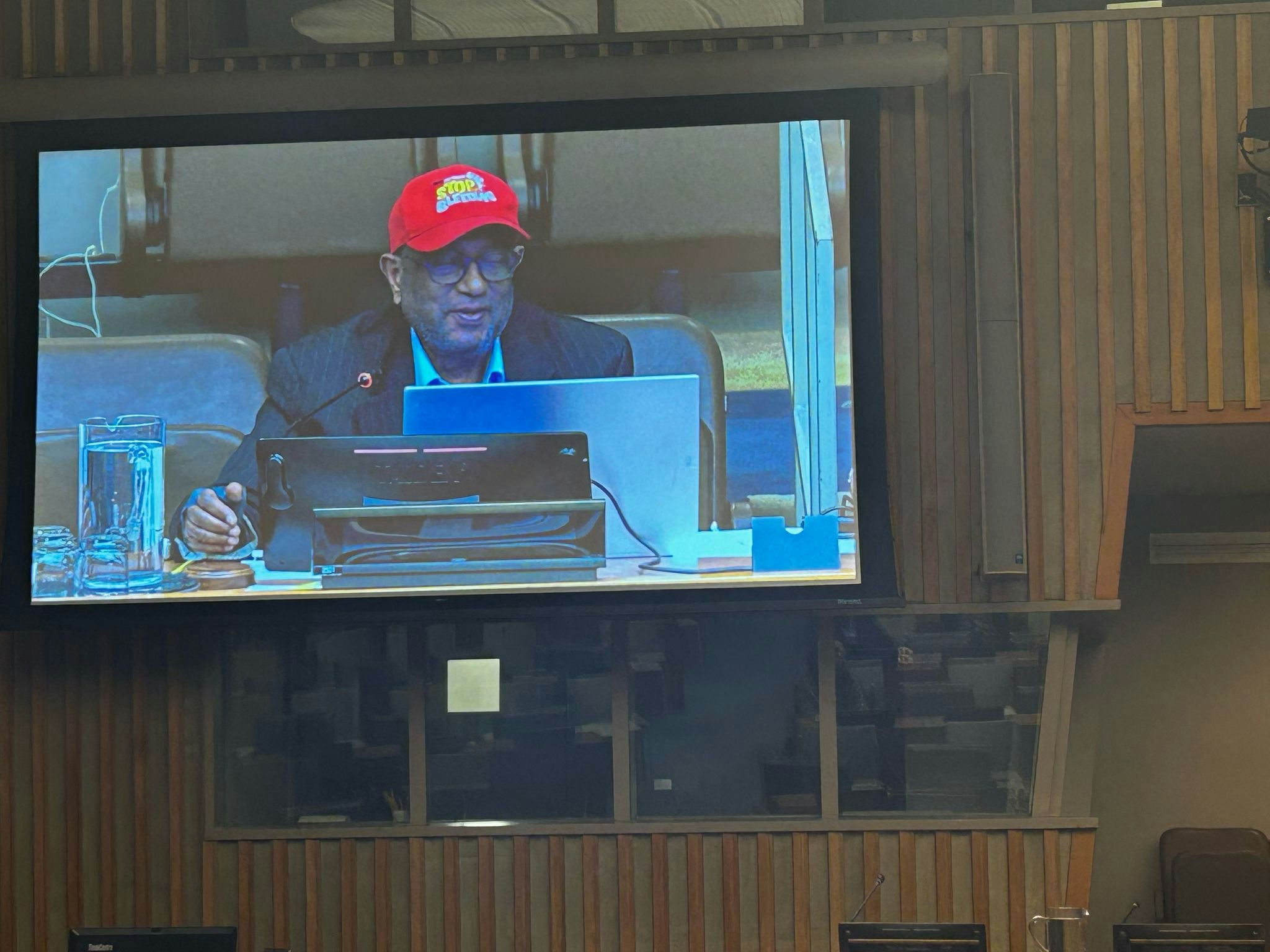Towards an ambitious FfD4 Conference: Civil Society Response to the First Draft Outcome
Date: Wednesday, April 30, 2025 Time: 1:15 - 2:30pm Venue: CR- 4, UN Headquarters, NY

As part of the lead-up to the Fourth International Conference on Financing for Development (FFD4), this dedicated side event provided a platform for civil society to present its assessment of the FFD4 Outctome First Draft UN Member States.
Participants offered reactions to each of the draft’s thematic pillars, identifying both challenges and opportunities to strengthen the document. Civil society representatives shared a series of proposals aimed at raising the level of ambition, particularly through the integration of cross-cutting issues such as gender equality and climate justice.
The event emphasized feminist perspectives and the need to uphold climate and ecological integrity as central to reforming global economic governance in the context of FFD4.
The current lack of ambition of the FfD4 Outcome First Draft document is concerning. As Civil SocietyFfD Mechanism, we have been calling for a 4th Financing for Development (FfD) conference under the auspices of the UN, as it remains the only place where Global South countries are at the table with an equal voice and vote on global economic governance matters that profoundly shape their economies and societies. However, the risk of missing this major opportunity for profound transformation of the systemic failures of the international financial and economic system not only affects our present, by failing to address deep inequalities within and between countries. It also directly affects future generations and the sustainability of life and livelihoods for all, particularly those in the intersections of multiple inequalities.
The past decade of the 2030 Agenda has only shown business-as-usual and has not delivered internationally agreed commitments of the Sustainable Development Goals. Amidst the current polycrisis, women of the Global South continue to be the backbone of the global economy through their unpaid care work, while bearing the brunt of a widening gender gap and inequalities, informalisation of work, as well as increasing gender-based violence in both domestic and workplaces.
The climate emergency is real and a systemic global threat to humanity, and it will become even more devastating as global temperatures keep rising. It disproportionately affects countries least responsible for historical GHGs emissions, and impacts historically marginalized and discriminated groups the most. It is clear that there is a need to go beyond climate finance, promoting a reform of the IFA that seriously takes into account a logic of ecological integrity in every dimension of the economic and financial architecture. This demands an understanding of how the current economic model drives a series of ecological harms, and the ways in which a systemic transformation should be led bearing in mind the urgency at hand.

